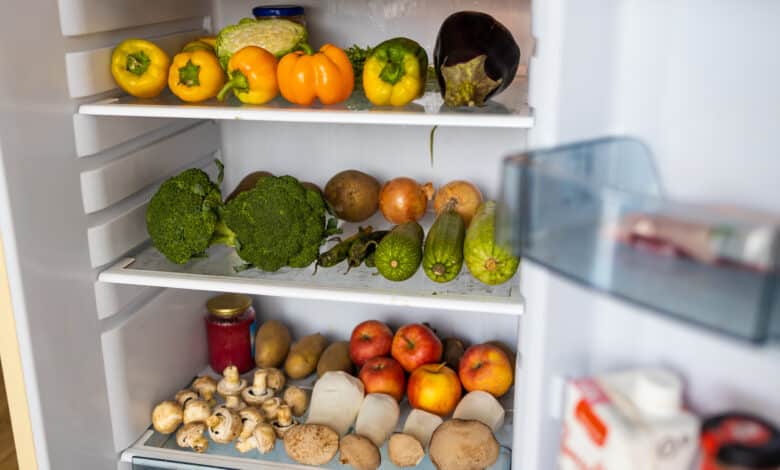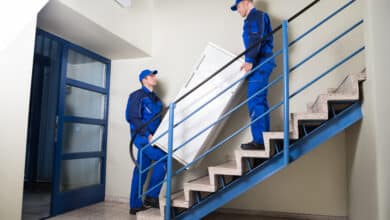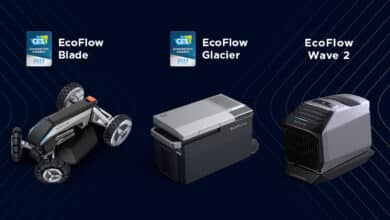
When we open the door to our refrigerator, we expect a strictly regulated process: We see the light shine, routinely reach into the cold box, take something out and close the door again. This happens several times a day and rarely lasts more than a few moments – unless our routine is disrupted. If we notice water in the refrigerator, not in carefully curated bottles, but as an unsightly puddle on the floor or ugly drops on our food, we know something is wrong. But what causes water to form in the refrigerator? And what to do when it does?
Condensation water forms in every refrigerator
First of all, the water you find in the fridge shouldn’t upset you too much. After all, water is found in every refrigerator. This is due to the fact that every time you open the refrigerator door, air enters the interior of the unit. The air coming in from the outside is warmer than the air inside. This ultimately ensures that the water bound in the air condenses – and settles in the refrigerator in droplet form.
In most cases, however, so little condensation occurs that we hardly notice it. The situation is different, however, when we put very warm food that is still steaming directly into the refrigerator. In this case, condensation is particularly high. Frequent and long opening of the refrigerator door can also increase the amount of condensed water in the refrigerator.
Possible causes of water in the refrigerator
However, puddles are rarely caused by the condensation of water trapped in the air alone. So, if you’ve found a particularly large amount of water in your refrigerator, there may be other causes that you can track down and fix.
Drain clogged
For example, every refrigerator is equipped with a small drain hole, through which the condensation water can flow away unobtrusively. If this drain gets clogged, the water accumulates inside the refrigerator and becomes noticeable after a while. The most common reason for a clogged refrigerator drain is that food or packaging is lying directly on the drain hole. In this case, they block the drain and keep the water inside the refrigerator. The problem can be easily fixed by moving them to unblock the hole.
In addition, drainage problems can occur when food is stored directly against the inside walls of the refrigerator. These provide drainage paths for the condensation water, which travels through them to the drain hole. Also in this case, the stored things represent blockages for the flow of water, making it wet in the refrigerator. Similarly, refrigerators that are overfilled.
Door leaking
A leaky door can also cause more water to collect in the refrigerator. This is due to the fact that warm air constantly enters the cold interior of the refrigerator through the leaky door. This leads to increased formation of condensation water, which may collect at the bottom of the refrigerator or on intermediate shelves.
Freezer compartment does not close optimally
In combined appliances consisting of a freezer compartment and a refrigerator, a leaking freezer compartment door may also be the cause of water accumulation in the refrigerator. In many cases, there is ice in the freezer compartment. If the freezer compartment does not close optimally, the ice located directly on the freezer compartment door slowly thaws and drips into the interior of the refrigerator, which is usually located below it. Here it collects as a result.
Temperature changes in the refrigerator
The refrigerator temperature itself can usually be regulated in several stages via a rotary control. You may have set the dial particularly high once recently. If this is the case, condensation can freeze inside the refrigerator. If the temperature control knob is then set to a lower level again, the frozen condensed water thaws and puddles form in the refrigerator.
Conclusion: water in the refrigerator
In conclusion, there can be many reasons for water in the refrigerator. However, in most cases, the water does not indicate a serious problem – in fact, to a small extent, it is perfectly normal. Almost all causes of water accumulated in the refrigerator can be fixed quickly and without expertise.
Du hast noch mehr Fragen zu deinem Kühlschrank oder möchtest ihn austauschen? Wir klären dich unter anderem darüber auf, ob du deinen Kühlschrank liegend transportieren kannst oder wie du deinen Stromverbrauch optimierst.




No replies yet
Neue Antworten laden...
Gehört zum Inventar
Beteilige dich an der Diskussion in der Basic Tutorials Community →